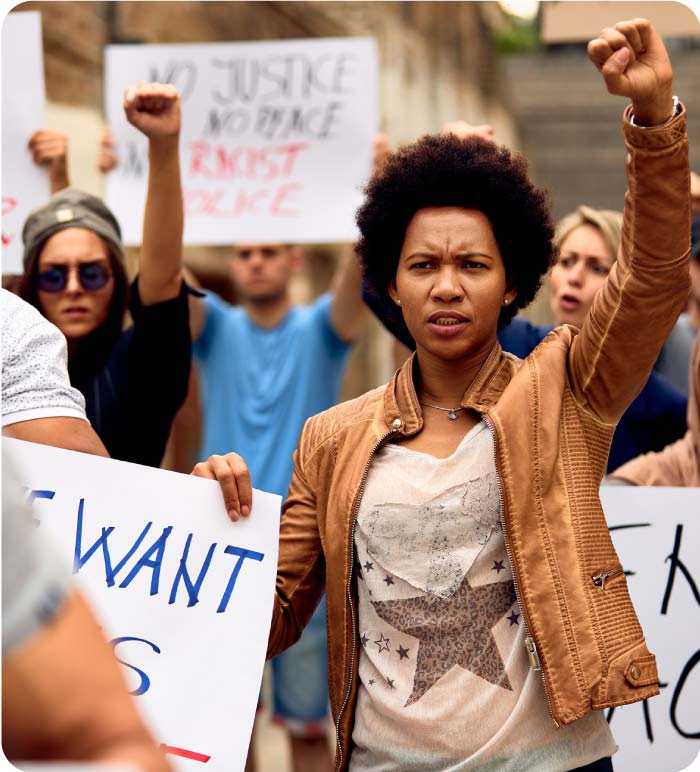Judicial Activism
Judicial Activism: Shaping Law and Protecting Rights
At N.U.M.B.E.R.S., we believe that judicial activism is essential for advancing sovereignty rights, protecting civil liberties, and ensuring economic justice. Throughout history, court rulings have shaped society, often addressing systemic inequalities that legislative bodies fail to resolve. While some criticize judicial activism as overreach, it has played a pivotal role in securing voting rights, desegregation, and financial justice.
As part of our mission, N.U.M.B.E.R.S. actively supports legal initiatives that empower marginalized communities, including efforts to establish new sovereignty laws. By leveraging the judicial system, we work to challenge unfair policies, push for economic independence, and create a legal foundation for financial sovereignty. Below, we explore the history, debates, and key rulings that have shaped judicial activism in the United States.

N.U.M.B.E.R.S. IS CLAIMING OUR
SOVEREIGN RIGHTS TODAY
Judicial activism is a judicial philosophy holding that the courts can and should go beyond the applicable law to consider broader societal implications of its decisions. It is sometimes used as an antonym of judicial restraint. It is usually a pejorative term, implying that judges make rulings based on their own political agenda rather than precedent and take advantage of judicial discretion. The definition of judicial activism and the specific decisions that are activist are controversial political issues. The question of judicial activism is closely related to judicial interpretation, statutory interpretation, and separation of powers. The examples and perspective in this article deal primarily with the United States and do not represent a worldwide view of the subject. You may improve this article, discuss the issue on the talk page, or create a new article, as appropriate. (May 2017)
A survey of judicial review in practice during the last three decades shows that ‘Judicial Activism’ has characterised the decisions of the Supreme Court at different times. Black’s Law Dictionary defines judicial activism as a “philosophy of judicial decision-making whereby judges allow their personal views about public policy, among other factors, to guide their decisions.”
Political science professor Bradley Canon has posited six dimensions along which judge courts may be perceived as activist: majoritarianism, interpretive stability, interpretive fidelity, substance/democratic process, specificity of policy, and availability of an alternate policymaker. David A. Strauss has argued that judicial activism can be narrowly defined as one or more of three possible actions: overturning laws as unconstitutional, overturning judicial precedent, and ruling against a preferred interpretation of the constitution.

Others have been less confident of the term’s meaning, finding it instead to be little more than a rhetorical shorthand. Kermit Roosevelt III has argued that “in practice ‘activist’ turns out to be little more than a rhetorically charged shorthand for decisions the speaker disagrees with”; likewise, the solicitor general under George W. Bush, Theodore Olson, said in an interview on Fox News Sunday, in regard to a case for same-sex marriage he had successfully litigated, that “most people use the term ‘judicial activism’ to explain decisions that they don’t like.” Supreme Court Justice Anthony Kennedy has said that “An activist court is a court that makes a decision you don’t like.”
DEBATE
The examples and perspectives in this article deal primarily with the United States and do not represent a worldwide view of the subject. You may improve this article, discuss the issue on the talk page, or create a new article, as appropriate. (May 2017)
Detractors of judicial activism charge that it usurps the power of the elected branches of government or appointed agencies, damaging the rule of law and democracy. Defenders of judicial activism say that in many cases it is a legitimate form of judicial review and that the interpretation of the law must change with changing times.
A third view is that the so-called “objective” interpretation of the law does not exist. According to law professor Brian Z. Tamanaha, “Throughout the so-called formalist age, it turns out, many prominent judges and jurists acknowledged that there were gaps and uncertainties in the law and that judges must sometimes make choices.” Under this view, any judge’s use of judicial discretion will necessarily be shaped by that judge’s personal and professional experience and his or her views on a wide range of matters, from legal and juridical philosophy to morals and ethics. This implies a tension between granting flexibility (to enable the dispensing of justice) and placing bounds on that flexibility (to hold judges to rule from legal grounds rather than extralegal ones).

Some proponents of a stronger judiciary argue that the judiciary helps provide checks and balances and should grant itself an expanded role to counterbalance the effects of transient majoritarianism, i.e., there should be an increase in the powers of a branch of government which is not directly subject to the electorate, so that the majority cannot dominate or oppress any particular minority through its elective powers. Other scholars have proposed that judicial activism is most appropriate when it restrains the tendency of democratic majorities to act out of passion and prejudice rather than after reasoned deliberation.
Moreover, they argue that the judiciary strikes down both elected and unelected official action, in some instances acts of legislative bodies reflecting the view the transient majority may have had at the moment of passage and not necessarily the view the same legislative body may have at the time the legislation is struck down. Also, the judges that are appointed are usually appointed by previously elected executive officials so that their philosophy should reflect that of those who nominated them, that an independent judiciary is a great asset to civil society since special interests are unable to dictate their version of constitutional interpretation with threat of stopping political donations.
United States Examples
The examples and perspective in this article deal primarily with the United States and do not represent a worldwide view of the subject. You may improve this article, discuss the issue on the talk page, or create a new article, as appropriate. (May 2017)
The following rulings have been characterized as judicial activism.
- Brown v. Board of Education – 1954 Supreme Court ruling ordering the desegregation of public schools.
- Roe v. Wade – 1973 Supreme Court ruling creating the constitutional right to an abortion.
- Bush v. Gore – The United States Supreme Court case between the major-party candidates in the 2000 presidential election, George W. Bush and Al Gore. The justices voted 5—4 to halt the recount of ballots in Florida and, as a result, George Bush was chosen as president.
- Citizens United v. Federal Election Commission – 2010 Supreme Court decision declaring Congressionally enacted limitations on corporate political spending and transparency as unconstitutional restrictions on free speech.
- Hollingsworth v. Perry – 2010 decision by Vaughn R. Walker for the United States District Court for the Northern District of California overturning California’s constitutional amendment to ban same-sex marriage.
- Obergefell v. Hodges – 2015 Supreme Court decision declaring same-sex marriage as a right guaranteed under the Due Process Clause and the Fourteenth Amendment.
- Janus v. AFSCME – a 2018 Supreme Court decision addressing whether unions can require dues from all workers who benefit from collective bargaining agreements. The decision overturned the 41-year old precedent of Abood v. Detroit Board of Education.
- Department of Homeland Security v. Regents of the University of California – a 2020 Supreme Court decision addressing whether the Department of Homeland Security under U.S. President Donald Trump had the authority to dismantle the Deferred Action for Childhood Arrivals program initiated by Executive Order under Former U.S. President Barack Obama.
Join the Movement, Become a Volunteer!
Make a real impact by volunteering with N.U.M.B.E.R.S. Your time and skills can help advance sovereignty rights, support economic empowerment, and fight for justice in marginalized communities. Stand with us, take action, and be part of the change!
And Follow Our Journey!
